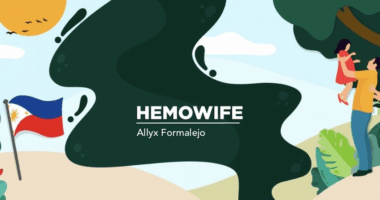Women’s Day Reminded Me of the Importance of Equality

Tuesday morning, March 8. Bright rays of sun had already passed through our floor-length bedroom windows, but my sleep-deprived brain was fighting to keep my eyes shut for a few more minutes. The day before I had worked myself into a mental breakdown, which had zapped my energy completely.
“Wake up,” I heard my husband, Jared, call out to me. “It’s a special day today! Is there anything you’d like to do today? Some food you’d like me to cook for you?”
“What’s today?” I sighed, groggy and bewildered.
“It’s International Women’s Day!”
I felt my mental energy rise. Although we don’t normally celebrate such commemorative dates, I thought it was so sweet of Jared to mention this one.
Jared is a huge advocate of equality — not just between the sexes, but among various sectors in society. He believes in empowering the less empowered and giving people equal access to opportunities. This makes me really proud to be married to him.
Jared always treats me as his equal. He listens to what I have to say, regardless of whether it’s positive or negative. He also keeps himself open to criticism.
I appreciate that he doesn’t force me to do anything or insist that I act or dress a certain way. He gives me ample freedom and space to be myself and do the things I love, even if he doesn’t understand why I like them. In such cases, he simply tells me, “I’m glad you’re happy.”
Jared often tells me that he feels more at ease in the company of women. To him, women are more relatable. I’m not at all surprised at that. As a man living with disabilities (severe hemophilia B and an acquired seizure disorder), his experience of the world is in many ways parallel to women’s.
Much like people with disabilities (PWDs), women are sociologically considered a minority due to their status in society. Throughout history, women have suffered from discrimination and exclusion from many aspects of the community. In the same way, people with disabilities are treated with much prejudice and doubt.
Both women and PWDs experience a degree of workplace exclusion, for instance. Jared personally experienced while seeking employment when he was fresh out of college. Some companies he applied to turned him down when they learned that he could not drive or commute on his own. Some recruiters had reservations because they felt he would miss too much work.
In reality, my husband’s disability isn’t relevant to his skill set — but the ableist paradigm by which many societies operate suggests that PWDs are somehow less capable than those who are physically “normal.”
Luckily, the employment landscape has evolved. The hybrid workspace is now the norm in response to the COVID-19 pandemic. Gone are the days when employees could work only from an office. We have already proven that working from home does work. In some cases, it’s even more effective.
Thanks to telecommuting and cloud computing, the playing field for both disabled and nondisabled workers is much more even. Disabled workers have more opportunities open to them, now that technology allows them to transcend their physical limitations. I pray that even as life slowly returns to normal, the work-from-home setup never goes away.
This Women’s History Month, I would like to express my hope that there will be level opportunities for all minorities. Every group should have access to basic needs, such as employment, food, and essential services, including healthcare and medicine. (Allow me to shout out women with hemophilia, another rare sector. May they enjoy the same access to treatment as their blood brothers.)
It’s really a no-brainer: When there is an underlying culture of respect for everyone’s basic humanity, we’re more likely to offer what people need and deserve.
Note: Hemophilia News Today is strictly a news and information website about the disease. It does not provide medical advice, diagnosis, or treatment. This content is not intended to be a substitute for professional medical advice, diagnosis, or treatment. Always seek the advice of your physician or another qualified health provider with any questions you may have regarding a medical condition. Never disregard professional medical advice or delay in seeking it because of something you have read on this website. The opinions expressed in this column are not those of Hemophilia News Today or its parent company, Bionews, and are intended to spark discussion about issues pertaining to hemophilia.








Leave a comment
Fill in the required fields to post. Your email address will not be published.